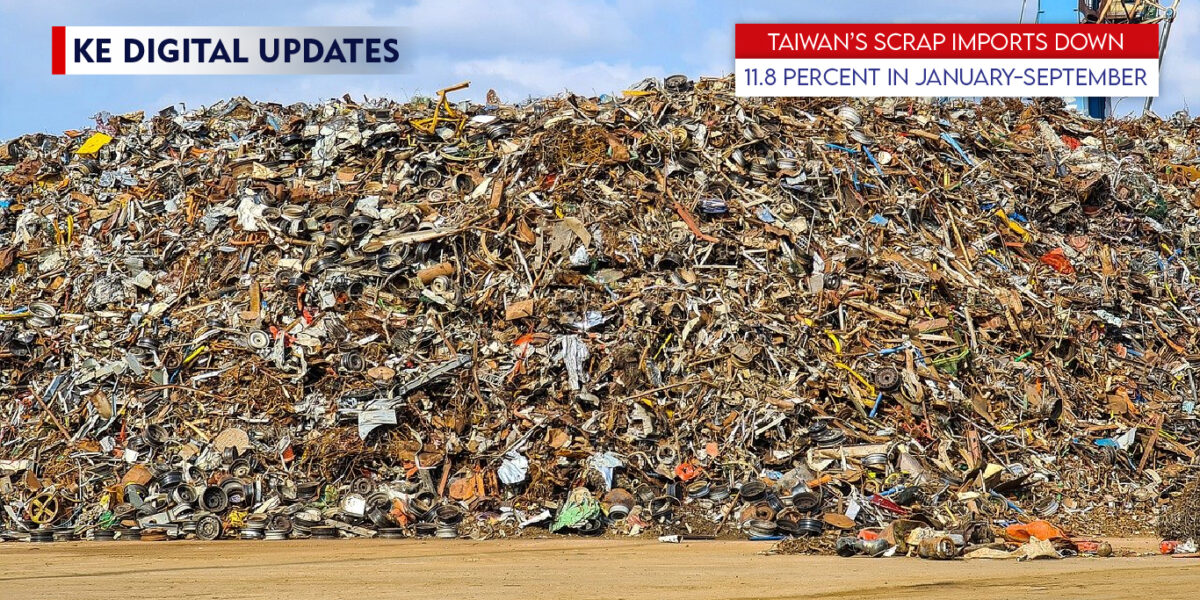Published on 17 Oct, 2024
Overview
According to official customs figures, Taiwan’s total ferrous scrap imports fell 11.8 percent year-on-year to 2,277,853 metric tons (mt) from January to September. This decline reflects broader global scrap metal market trends, influenced by economic and geopolitical factors.
Key Suppliers
The United States remained Taiwan’s top scrap supplier, sending 962,270 mt, a slight increase of 0.8 percent from the previous year. This steady supply from the US highlights the strong trade relationship between the two countries in the scrap metal sector. In contrast, Japan, another major supplier, significantly decreased its scrap exports to Taiwan. Taiwan imported 490,653 mt of scrap from Japan, a sharp decline of 33.6 percent compared to the previous year. This reduction could be attributed to various factors, including domestic demand in Japan and changes in trade policies.
Monthly Trends In September alone, Taiwan’s scrap imports were 242,710 mt, showing a 12.7 percent increase month-over-month. However, this figure represents a 21.2 percent decrease compared to September of the previous year. The month-over-month increase suggests a short-term boost in demand or availability, while the year-over-year decline indicates a longer-term downward trend.
Market Implications
Decreased scrap imports could have several implications for Taiwan’s steel industry. Reduced scrap availability might lead to higher raw material costs, potentially impacting steel production and prices. Additionally, the varying supply from key partners like the US and Japan could influence Taiwan’s sourcing strategies and trade negotiations.
Global Context
This trend in Taiwan’s scrap imports is part of a larger global pattern. The scrap metal market is highly sensitive to economic cycles, trade policies, and environmental regulations. For instance, fluctuations in industrial activity, changes in import/export tariffs, and shifts in environmental policies can all significantly impact scrap metal trade.
Conclusion Taiwan’s 11.8 percent decline in scrap imports from January to September underscores the dynamic nature of the global scrap metal market. While the US continues to be a stable supplier, the significant drop in imports from Japan highlights the complexities of international trade. As Taiwan navigates these changes, the steel industry must adapt to ensure a steady supply of raw materials.


